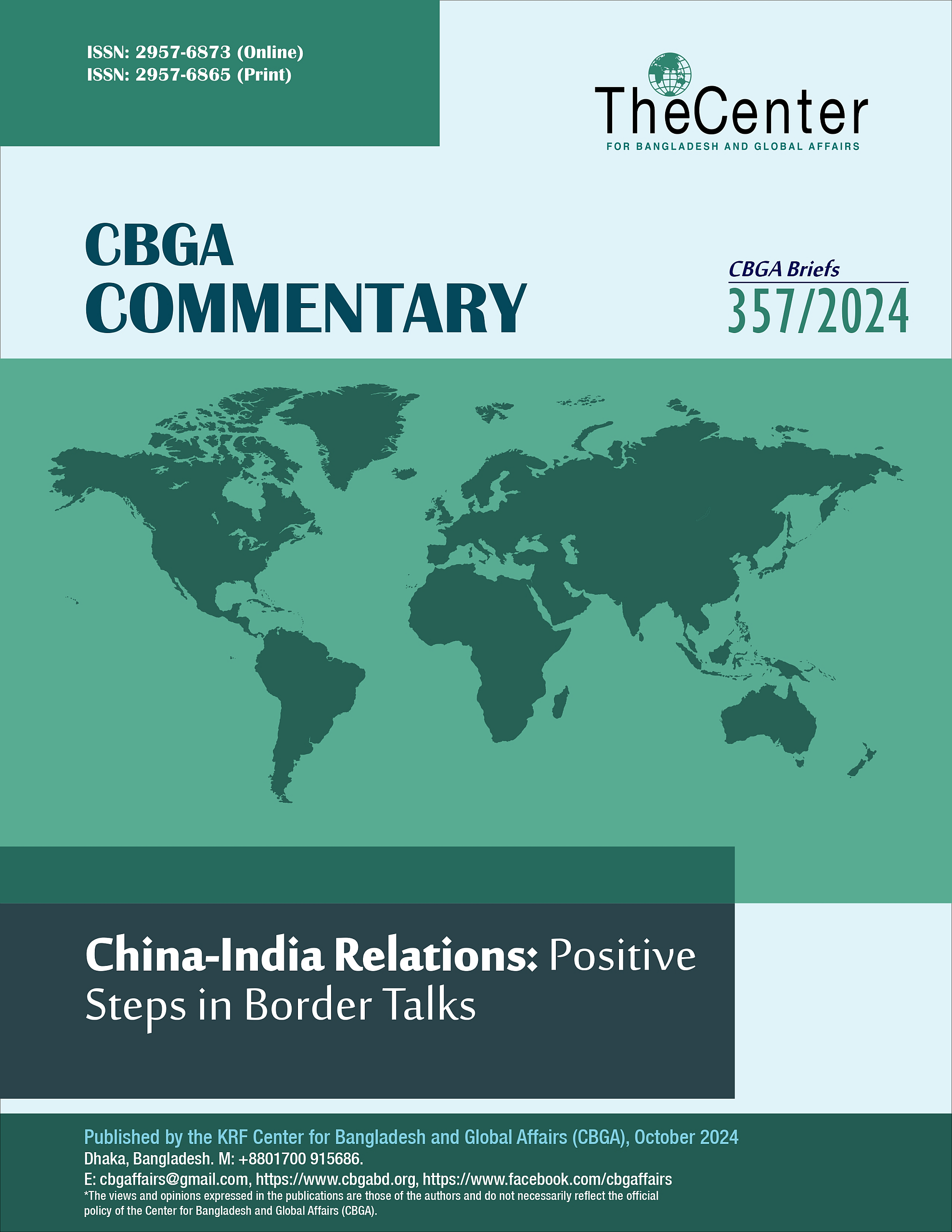
After two years of heightened tensions, there are encouraging signs that India and China are moving towards a thaw in their strained relationship. Recent high-level meetings and agreements indicate a mutual desire to overcome long-standing border disputes. The dialogue between National Security Advisor Ajit Doval and Chinese Foreign Minister Wang Yi during the BRICS meeting in St Petersburg could signal a fresh diplomatic engagement between the two nations. Adding to this optimism, Indian External Affairs Minister S. Jaishankar stated that 75% of disengagement issues along the border have been addressed, further bolstering hopes for improved Sino-Indian relations.
The standoff that began in May 2020, particularly after the intense skirmish in Galwan Valley, has seen both countries experience significant military tensions and diplomatic deadlocks. However, the recent discussions between Doval and Wang Yi on September 13 marked a critical moment, as both parties committed to accelerating “complete disengagement” along the contested borders. This shift in tone is a clear indication of both nations’ determination to stabilize their relationship.
On September 21, the two countries held the 31st meeting of the Working Mechanism for Consultation and Coordination (WMCC) on border affairs. Described as taking place in a “positive, friendly and frank atmosphere,” this meeting underscores an increase in dialogue frequency, reflecting an urgent need to resolve outstanding issues. These developments suggest that both India and China are willing to work together towards a sustainable resolution of their border disputes.
The recent interactions hint at a potential turning point in bilateral relations. The growing frequency of these meetings demonstrates that both governments acknowledge the importance of ongoing dialogue. The constructive tone adopted by both sides is vital in fostering an environment conducive to tackling the complexities that have long hindered their relationship. While these talks may not completely resolve the border issues, they certainly lay the groundwork for fresh approaches to longstanding challenges.
The Importance of India-China Relations
The significance of improving relations between India and China stretches far beyond the two nations themselves; it is crucial for maintaining regional stability in Asia. As major powers with substantial influence over economic and security matters, their cooperation is vital. Resolving border disputes can pave the way for enhanced collaboration on various fronts, including trade, climate change, and counter-terrorism efforts.
A Foundation for Global Cooperation
With significant international events like the United Nations General Assembly and the BRICS summit on the horizon, fostering a more amicable relationship between India and China could bolster diplomatic negotiations on pressing global issues. Building trust between these two countries has the potential to serve as a model for conflict resolution in other areas of international relations, demonstrating that dialogue and diplomacy can lead to constructive outcomes.
Navigating Challenges Together
While challenges still exist, the recent progress in discussions indicates a hopeful step toward restoring ties. Continuous dialogue and collaboration could usher in a more stable and prosperous future not only for India and China but also for the entire region. Their interactions are critical, as they hold significant sway over global dynamics due to their status as two of the largest economies and military powers. A cooperative relationship can drive economic growth and development, benefiting neighboring countries as well.
Countering External Influences
Both India and China are acutely aware of the need to manage their differences, particularly concerning external influences, especially from the United States. By prioritizing diplomatic negotiations and focusing on resolving border disputes, the two nations are effectively countering any potential overreach by the U.S. in the region. This strategic approach highlights their commitment to collaboration in addressing common challenges while avoiding full-scale U.S. involvement, which neither country desires.
Economic Interdependence as a Driver for Peace
India and China share a deep economic interdependence, with significant ties that emphasize the necessity of stable relations. Both nations stand to gain from enhanced trade, investment, and cooperation across various sectors, including technology and infrastructure. This economic connection serves as a driving force behind their efforts to peacefully resolve outstanding issues along the Line of Actual Control (LAC). The ongoing border talks underscore their recognition of the need for sustained dialogue to effectively manage shared interests. By prioritizing diplomatic channels over military confrontations, both countries signal their commitment to peace and stability. This approach reflects a broader strategic framework aimed at maintaining balance in the region amid evolving global power dynamics.
To summarize, strengthening India-China relations is essential not only for their mutual prosperity but also for fostering a stable and cooperative regional environment. The recent openness in communication signals a shared recognition between both nations that a stable relationship is crucial for ensuring regional peace and cooperation. As they navigate their common interests and concerns, it is evident that India and China are actively pursuing opportunities to enhance their ties. Through continued dialogue and collaboration, both countries can effectively address their challenges while contributing to a more peaceful and prosperous Asia. This marks a promising step forward in their diplomatic journey, highlighting the importance of cooperation in achieving lasting stability in the region.
– S. M. Saifee Islam is a Research Associate at the KRF Center for Bangladesh and Global Affairs (CBGA).







